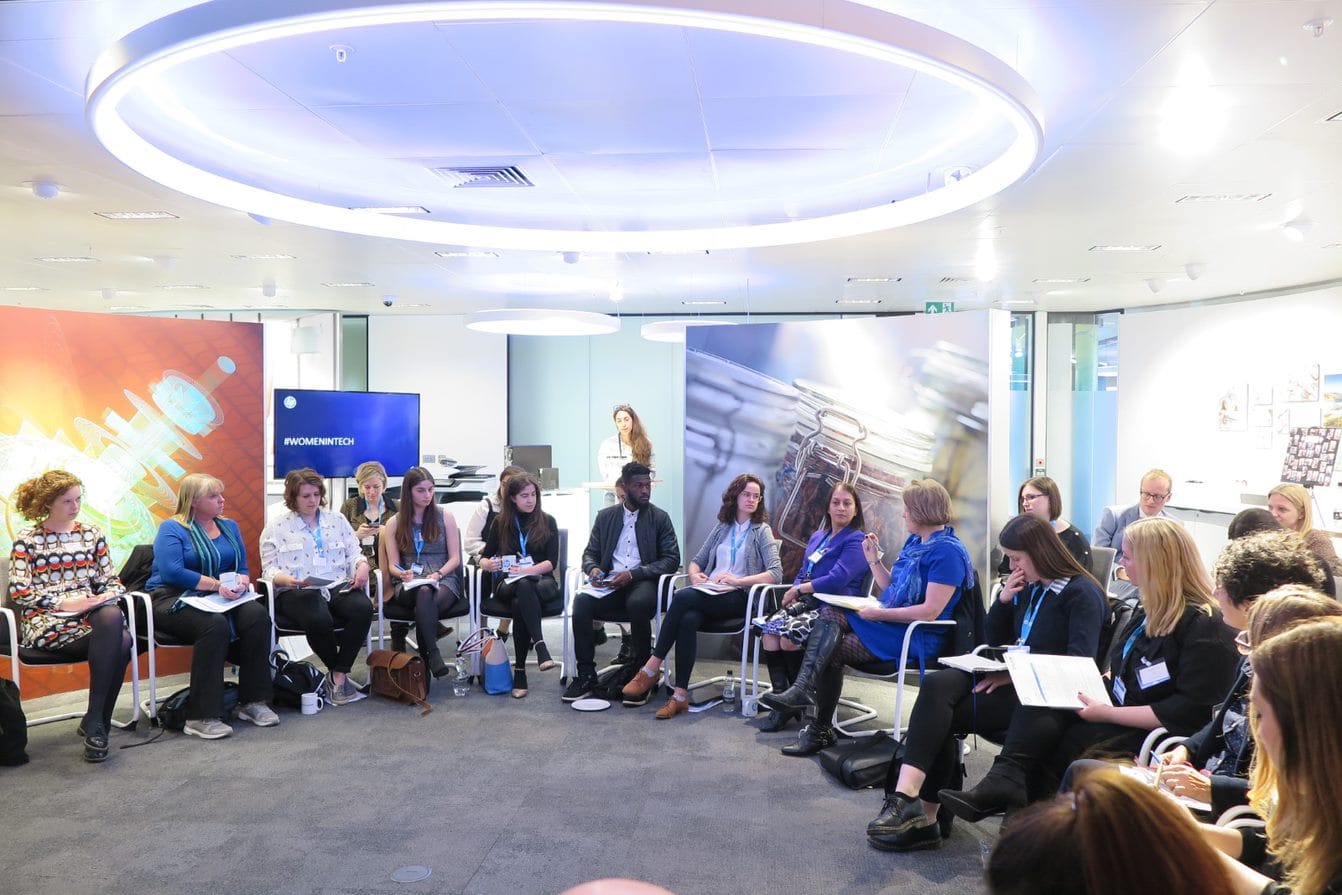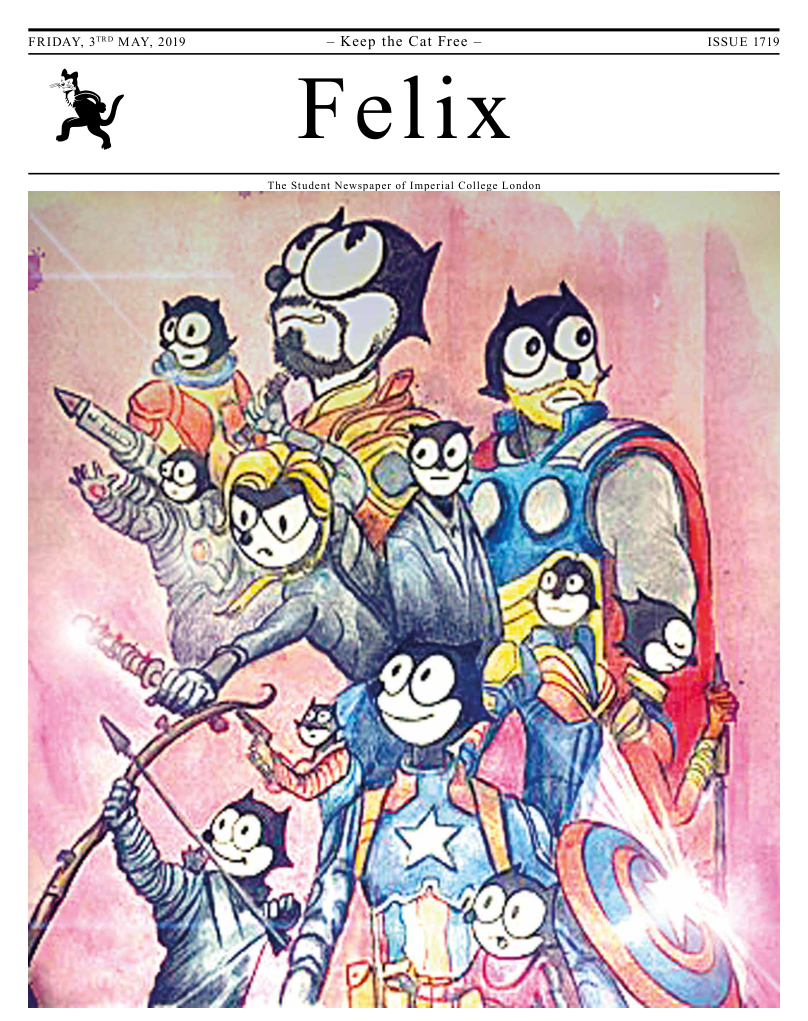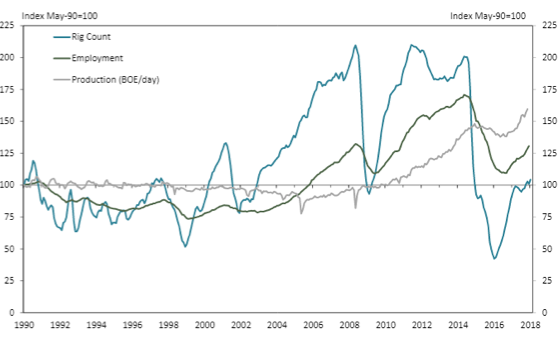HP #WomeninTech Roundtable
Tech giants host event to tackle the issue of perceptions and barriers to women entering the tech sector

On Wednesday 10th April, Felix attended a roundtable discussion on the perceived barriers of women in the UK to joining the tech industry.
The event was jointly hosted by HP and The Fawcett Society, the UK’s leading organisation campaigning for equality between women and men, and drew upon an independent HP-commissioned study to find out why the industry struggles to attract women and what can be done to help.
George Brasher, Managing Director of HP UK & Ireland chaired the event and, following housekeeping and a welcome, introduced the plan for the session and opened the floor for those in attendance to contribute. Addressing the group, he said: “As a company, we feel that diversity creates benefits for us. But if you look at the numbers, we have the same issue that the industry does - in that women are underrepresented. Words are interesting but actions create results.”
There were representatives from business, media and government at the roundtable and Vicky Ford, MP for Chemlsford, provided an update on what the government is doing to tackle the issue: “We know that tech and entrepreneurship are linked, but less than a penny in the pound goes to all-women businesses compared to 89p to all-male businesses. That’s why Government is putting more money into start-up loans. They’ve put £1m into another fund, and £20m into the institute for coding’s diversity project.” However, she also added, “it’s got to be led by business”.
Sam Smethers, Chair of the Fawcett Society, then took over chairing duties, adding, “Part of the problem is where we stereotype what’s normal for girls. If we don’t get in at that early stage, we are swimming against the tide.” To spark initial conversation, she then invited everyone at the discussion to contribute one sentence on what they would change to get more young women into tech. Sam’s sentiments were largely echoed, with many people highlighting how crucial it is to “strike early” in the lives and careers of young women. Debbie Forster, Chair of Tech Talent Charter added: “I’m from an education background so I completely agree that it’s important. George alluded to the fact that there’s a problem with women who ‘didn’t catch the right flight’ - how do we do retraining and move women from consumers to creators. Tech desperately wants women, and 50% say they would retrain.
Claire MacDonald from Computer Weekly concurred, stating: “there needs to be more of a focus along the entire pipeline. Even if young women follow a tech path, they often find that it’s not the inclusive environment they want or need”.
Many recurring themes were discussed, especially the topic of effective retraining, maternity leave and how to effectively collaborate with schools and the education sector to tackle this issue. When the topic of representation at senior positions in tech companies was raised, it opened up an interesting debate about the use of quotas. Ultimately, the roundtable discussion succeeded in providing a platform through which ideas could be shared and the issues were able to be discussed in an open and fruitful manner.

After the roundtable discussion, Felix spoke to HP Graduate, Steph Audeh, and HP intern, Vera Hansen, who started working at HP in January 2019 and July 2018, respectively, about their experiences working in tech.
Felix: How has it been so far? What’s your experience been as an intern/ graduate?
Steph: It’s been great. I’ve had some serious exposure to amazing projects in sustainability, in diversity, on innovation. I’ve had a wealth of opportunities in three months. It’s a little bit insane, in a great way.
Vera: It’s been great. My role is supporting George, the Managing Director, and his Chief of Staff and his Executive Assistant. It’s a great role. Like Steph, I’ve had a range of experiences and exposure. I’ve been working on Brexit, I’ve been working on a lot of things, it’s a really broad role that I love.
What’s been the highlight?
Steph: The highlight so far is the work I’ve been doing with diversity actually. It’s one of my passions and we’ve been working closely with Debbie from Tech Talent Charter. We’ve been to a couple events, now we have this, and I think, because it’s one of my passions, it’s one of my highlights, working in programs to increase awareness on diversity and women in tech.
What would you say is the biggest challenge you’ve faced both in working here but then also in increasing awareness about diversity like you mentioned?
Steph: I think it’s when I arrived, it’s quite a steep learning curve. You’ve got to go and you’ve got to absorb a lot of information and understand what companies are doing and best practice. It’s complex and to get your head around it in such a short space of time to get up to speed was quite tricky. So I think one of my challenges is absorbing all the information and then taking a logical approach.
Vera: In terms of challenges, I agree, it’s kind of the onboarding and the taking everything in but then I think, especially at HP, we have a lot of support. We have mentors, we have our managers, no one ever says no really, if you ask for help.
From the discussions had today, what would you say is your main take home message?
Steph: My main take home message was collaboration actually. I think the fact that companies shouldn’t be doing it in silos, whether you’re competitors or you’re from different areas in the tech background or other backgrounds, it’s the fact that the only way we can move is all together. That’s my key take-away; and the fact that it needs to be sustainable and scalable. It’s not a short term thing.
Vera: It’s slightly contradictory. Like you said about collaboration and partnership, that’s really important but then I loved a point that George made that tech is such a competitive industry and starting putting metrics on things will really bring change because, if HP starts getting public measures on diversity, then other firms will try to compete, given the nature of the sector. I think that would really make a boost, if everyone starts publically putting more measures on the subject.
Finally, what sort of advice would you give to women to get to a job in HP or a job in tech?
Steph: Be open to opportunities. When I started applying for placement, because I was an intern at HP, I didn’t actually consider tech. I almost stumbled into it and it was being open to it; I had a bit of reservation – do I go, do I not? Just do it, see what it is, you might love it. It’s the fact that, maybe when I was going through education, I wasn’t open to those sort of opportunities - you can have a job in a tech company in a non-technical capacity. Try and experience as many sectors as possible and just be open to it because you might stumble on a passion you’ve never realised.
Vera: I think I have to agree. Like Steph, I stumbled into tech and, because in my course [Business Management] a placement is compulsory, I was applying to a wide range of sectors and slowly the applications I was getting further in were all in tech. I was really surprised. It’s taken me down this path but I’m really loving it. The dynamics and the fast-pace of this sector is amazing. You always feel at the forefront so I really encourage people to joining the tech industry; tech or non-technical jobs, it’s a really good experience.









